 The federal budget, announced on March 19, is the last before this fall’s general election. The budget document included acknowledgment of the importance of the cultural sector, stating:
The federal budget, announced on March 19, is the last before this fall’s general election. The budget document included acknowledgment of the importance of the cultural sector, stating:
Across the country, Canada’s artists and their supporters bring people together, to appreciate and celebrate the diversity and creativity that Canadians are known for the world over. Our cultural industries are also an important source of jobs—employing more than 650,000 Canadians—and are a key contributor to our economy, worth nearly $54 billion each year.
To continue advancing the cultural sector, Budget 2019 announced:
$20 million over two years, starting in 2019–20, to the Canada Music Fund.
The Canada Music Fund (CMF) helps the Canadian music industry meet new challenges. A wide range of musicians and entrepreneurs who create, produce and market original and diverse Canadian music are eligible to apply. The CMF is the primary tool implementing the three major objectives of the Canadian Sound Recording Policy, From Creators to Audience, which are: to enhance access to a diverse range of Canadian music choices through existing and emerging media; to increase the opportunities available for Canadian music artists and entrepreneurs to make a significant and lasting contribution to Canadian cultural expression; and to ensure that Canadian music artists and entrepreneurs have the skills, know-how and tools to succeed in a global and digital environment.)
$16 million over two years, starting in 2019–20, to the Canada Arts Presentation Fund.
The Canada Arts Presentation Fund (CAPF) provides financial assistance to organizations that professionally present arts festivals or performing arts series (arts presenters) and organizations that offer support to arts presenters. Through the CAPF, Canadians have access to a variety of professional artistic experiences in their communities. Each year, the CAPF supports approximately 600 professional arts festivals and performing arts series, as well as other activities related to art presentation, in more than 250 cities or communities across Canada. The CAPF has two main components – Programming and Development. The CAPF Programming component has two streams: Professional Arts Festivals and Performing Arts Series Presenters; and Presenter Support Organizations.)
$24 million over two years, starting in 2019–20, to the Building Communities Through Arts and Heritage Program, the Celebration Program, and the Commemoration Program
The Building Communities Through Arts and Heritage program was created to help you celebrate your community – both its past and its present. This program increases opportunities for local artists, artisans, heritage performers or specialists to be involved in their community through festivals, events and projects. It also allows local groups to commemorate their local history and heritage.
Celebrate Canada provides funding for activities organized on National Indigenous Peoples Day (June 21); Saint-Jean-Baptiste Day (June 24); Canadian Multiculturalism Day (June 27); and Canada Day (July 1).
The Commemorate Canada program provides funding to initiatives that commemorate and celebrate historical figures, places, events and accomplishments of national significance. The program favours commemorations and celebrations marking 25th, 50th, 75th, 100th anniversaries and subsequent anniversaries in increments of 25 years.
In addition, support of $1 million is being provided over two years to Canadian Heritage’s efforts to integrate Gender-based Analysis plus (GBA+) in program design.
More broadly—but still of potential value in the arts and culture sector—the budget includes provision for a doubling of work placements for youth through the Canada Summer Jobs program in 2019–20, and new funding to modernize the Youth Employment Strategy.
Budget 2019 continues measures already announced in previous budgets, including staged funding increases to the Canada Council for the Arts, which will double the Council’s parliamentary appropriation (from a 2016 base) by 2021.
What this means for orchestras
The budget’s positive references to the social and economic impact of the arts represent good news for the arts and culture sector. Further, the continued, sustained increase to the Canada Council for the Arts was Orchestras Canada’s number one priority, as put forward in our 2019 pre-budget submission. This looks to have been achieved. Each of the other program increases that we’ve cited may – in very different ways – offer opportunities for Canadian orchestras, and Orchestras Canada will be keeping you apprised of what we learn in the coming weeks.
Next steps
- Orchestras Canada will review the detailed spending estimates when they’re made available, to better understand the fine details of the budget’s impact.
- We will reach out to partner umbrella organizations to learn more about the potential impact of these new investments on orchestras.
- We will continue to press for enhanced investment in the Endowment Incentives program.
- We will monitor changes to the Youth Employment Strategy, with a focus on enhanced opportunities for the arts sector.
- And, of course, we’ll share what we’re learning with you.


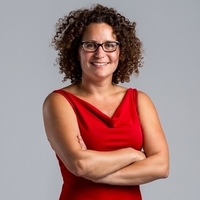
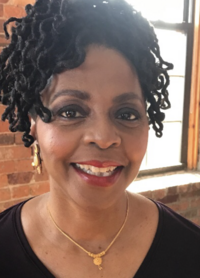
 Orchestras Canada has just opened nominations for the 2019
Orchestras Canada has just opened nominations for the 2019 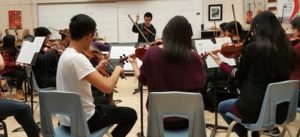 Esprit Orchestra
Esprit Orchestra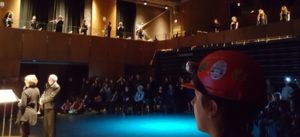 Ontario Resonance ran from September to November of 2017, culminating in seven performances in schools and venues across the GTA, with student compositions performed by a combination of student performers and professional Esprit musicians. The mentors’ works were showcased in an all-pro finale concert at Trinity St. Paul’s Centre on November 23, 2017 – a high energy ending to the program with a full audience in attendance.
Ontario Resonance ran from September to November of 2017, culminating in seven performances in schools and venues across the GTA, with student compositions performed by a combination of student performers and professional Esprit musicians. The mentors’ works were showcased in an all-pro finale concert at Trinity St. Paul’s Centre on November 23, 2017 – a high energy ending to the program with a full audience in attendance.
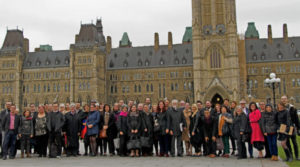
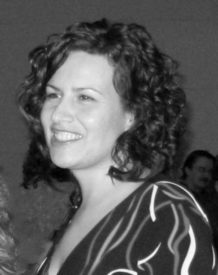 Cheryl is currently the Manager of Community Sport Development at Sask Sport Inc. and resides in Saskatoon, Saskatchewan. She oversees a number of projects using a community-based approach that has been effective in contributing to health and well-being in communities throughout Saskatchewan. She joined the Orchestras Canada board in June, 2018 and is currently a member of our Governance Committee, and the Inclusion, Diversity, Equity and Accessibility (IDEA) Committee.
Cheryl is currently the Manager of Community Sport Development at Sask Sport Inc. and resides in Saskatoon, Saskatchewan. She oversees a number of projects using a community-based approach that has been effective in contributing to health and well-being in communities throughout Saskatchewan. She joined the Orchestras Canada board in June, 2018 and is currently a member of our Governance Committee, and the Inclusion, Diversity, Equity and Accessibility (IDEA) Committee.